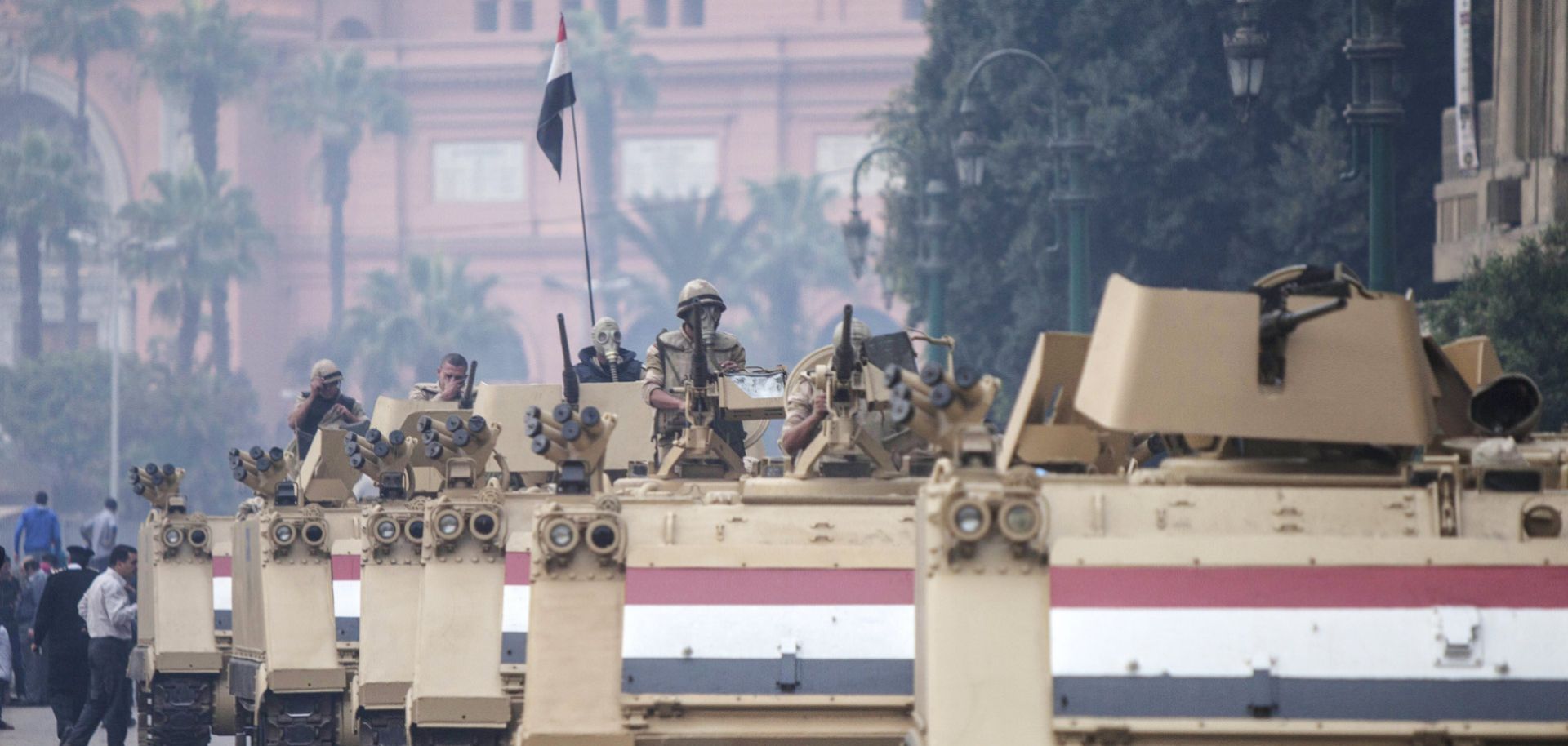Since its decolonization, Egypt has maintained the largest and most powerful military in the Arab world. Throughout its history, the independent Egyptian state has relied heavily on the military to protect its territorial interests, first during its decadeslong conflict with Israel and again in disputes with Libya and Sudan on Egypt's western and southern borders. But while the existential threat from conventional foreign militaries has waned in recent years, the new and unconventional dangers of insurgencies, terrorism and non-state actors have risen to take its place. Egypt's large and inflexible conventional forces, which are better suited to guard against foreign incursion, may not be as capable of addressing the country's current security issues.
With the Egyptian military firmly in control of the government and its troops increasingly called upon to stand alongside a joint Arab force, military leaders are unlikely to reduce or shift the nature of state defense expenditures, despite...

